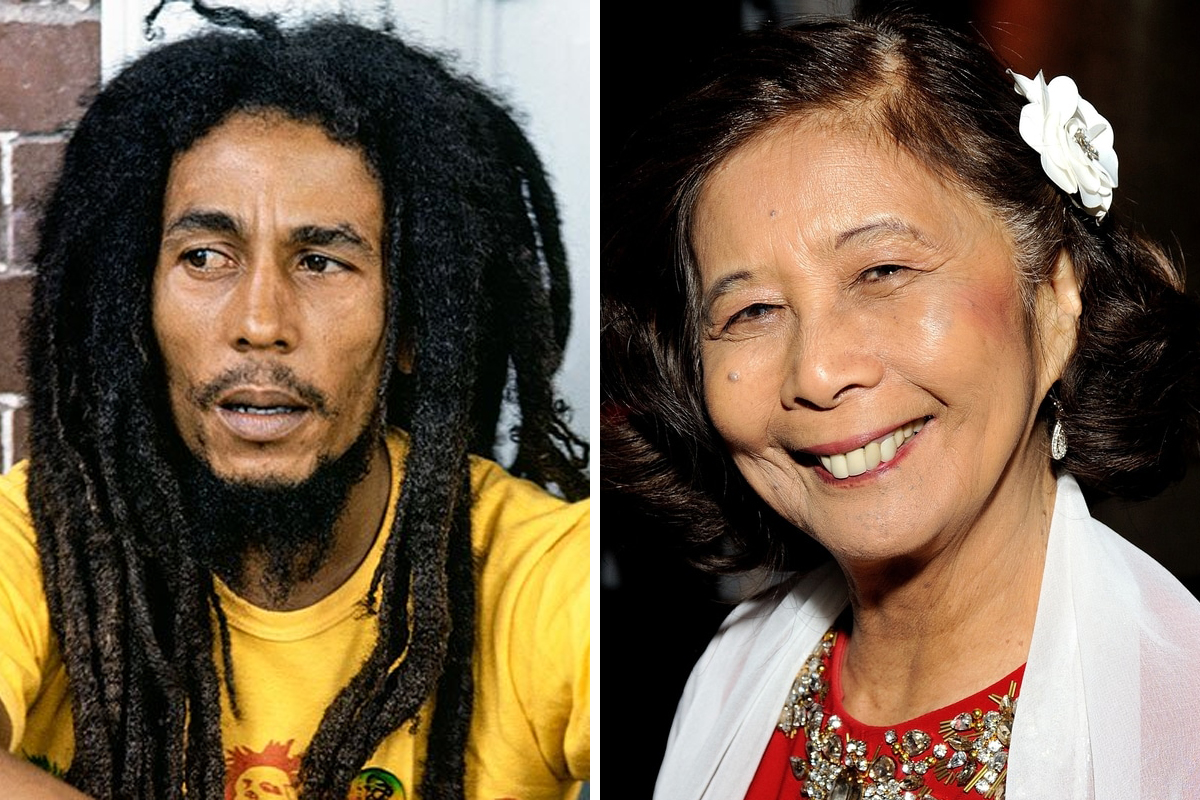VP Records Pioneer Pat Chin On Bob Marley: ‘Nobody Knew He Would Be A Hit’

Even as a bashful teenager, King of Reggae Bob Marley left an impression on VP Records co-founder Patricia “Miss Pat” Chin.
In her recent Breakfast Club interview, the retired label head outlined her pivotal role in the birth and evolution of Jamaica’s music industry, and touched on the days when the Tuff Gong himself would pop into her record shop.
She’s groomed many notable acts over the years — from Italian rootsman Alborosie to Zungguzungguguzungguzeng deejay Yellowman — but Miss Pat still clearly recalled the Trenchtown legend as a ‘shy’ youngster. Marley was reputedly not a man of many words, and by Miss Pat’s account, his roaring reception and impact globally was what ultimately led to recognition on home soil.
Marley may not have been the only prominent star to pass through her iconic Randy’s Records/ Studio 17 outlet, but his pre-fame presence was especially intriguing to the hosts.
“How was it working with him and just knowing him on a personal level?” Charlamagne asked Miss Pat.
“Bob Marley was very shy and not who you see on stage,” she said. “When he was about 16/17 he used to pass by the store. He was always going to play football with his friend (Allan) Skill Cole. He just came, looked around for his friends and then they would leave”.
It would take another of Jamaica’s sonic stalwarts to finally get the curious teen into the studio and on the path to stardom. “It was Lee Scratch Perry who first brought him in the studio upstairs and made his first LP,” said the 83-year-old pioneer.
Oddly enough, when asked whether or not she knew Marley was “special”, she stated that in the context, it wasn’t entirely obvious.
“No, everybody sang in Jamaica,” she began. “Bob Marley made the hits in America first and then in England before we realized. His manager Chris Blackwell really trained him and showed him the way. But [at] first, nobody knew Bob Marley would be a hit because everybody sang. So when he became a hit we had to brush off all the Bob Marley records because they were hot at that time,” she said laughing.
Even with 60+ years at the helm of her game-changing empire, the matriarch says it’s hard to spot a hit. According to her, a hit song is made through a combination of factors, including fan response and airplay. “I would say nobody knew a hit. A hit is not born in the studio or at the soundboard, it’s born in the streets. They always ask me ‘how do you spot a hit?’ I would say the people on the street make it a hit together with the radio stations,” she stated.
The album Lee Scratch Perry recorded and produced with Bob and his wailing Wailers at Studio 17 was 1970’s Soul Rebels. It was the roots trio’s first album to be released outside of Jamaica, dubbed an “unadulterated document of the early years of reggae”.
Renowned music journalist Robert Christgau wrote that he found Soul Rebels superior to the acclaimed Catch a Fire suite, however by the end of the decade, Marley was terminally ill and a drastic shift in the genre was underway.
Miss Pat and her husband Vincent eventually fled the island’s political turmoil, relocating to Jamaica, Queens and starting VP Records in 1979. They were just in time for dancehall’s digital boom, a shift that’s remained a prolific core focus in subsequent years.
Though their main business had been roots reggae, and “everybody knew Bob Marley”, “dancehall is what Americans understood”, Miss Pat said. “Because hip-hop was coming out at the same time, they could understand its similarity.”
Throughout the years, Miss Pat herself has stayed keen on those foundational sounds. While she didn’t name Marley or anyone in particular when asked her favorite artist, she shared that for her, each genre she’d dabbled in matched a different phase of life. “I have a lot [of favourites] but I’m a roots girl. I’m into the message, and it brings back a lot of memories, you know.”
She continued, “I usually say when you’re young, you love the dancehall [music] when you get a little older you love the roots music, and then when you get a little older you go for the lover’s rock. It’s a cycle and a vibes that you go through.”
